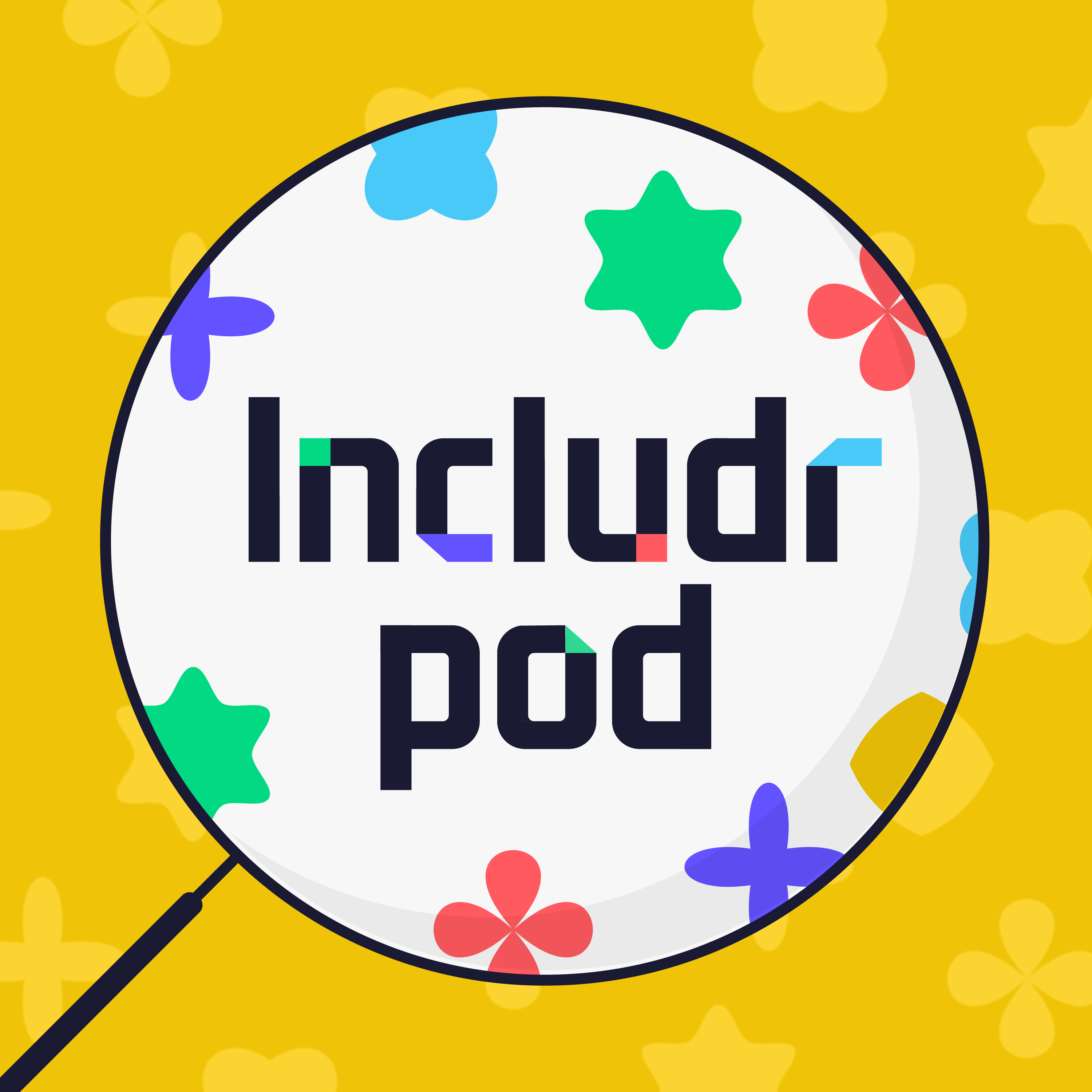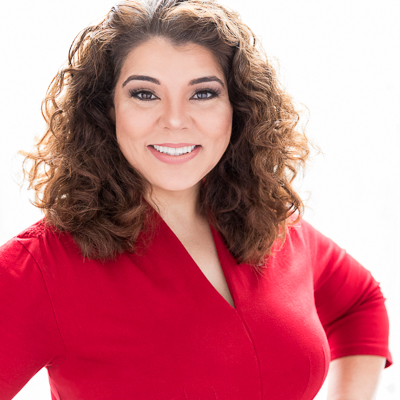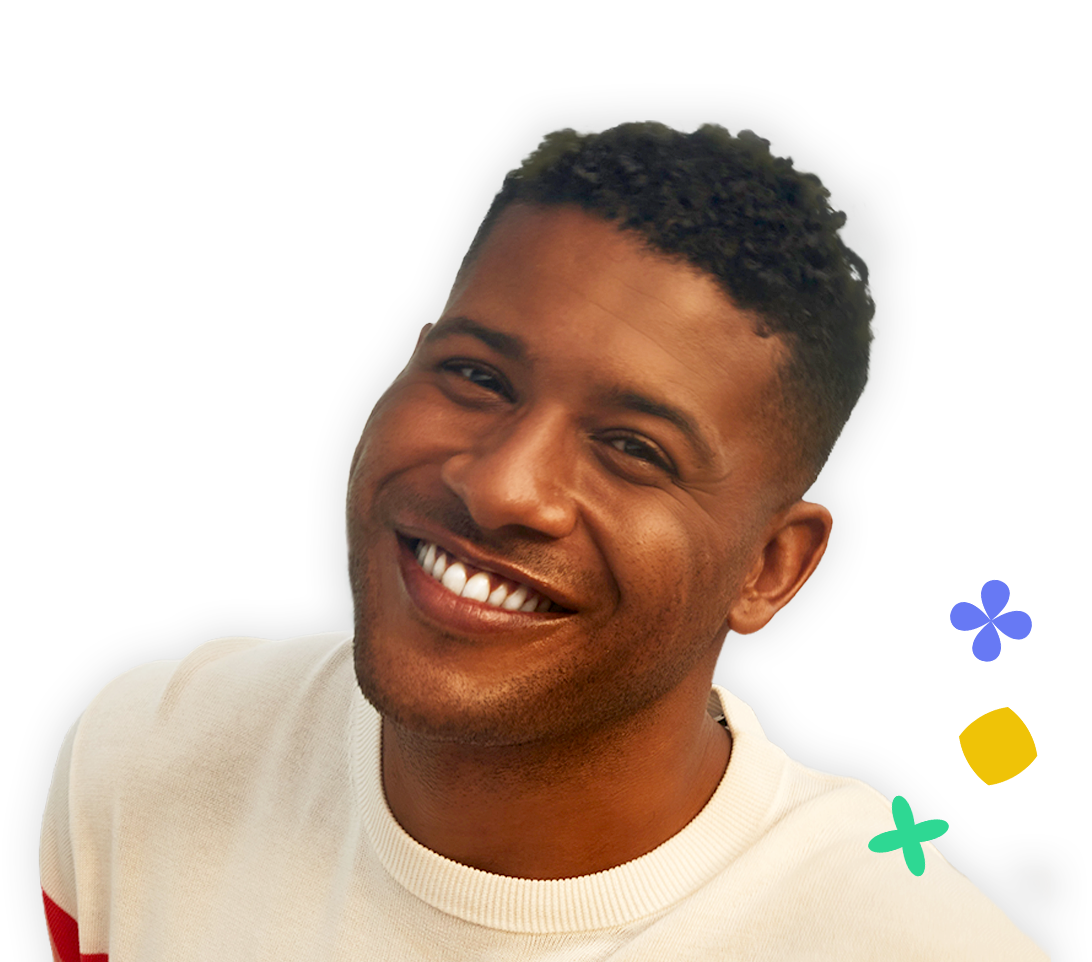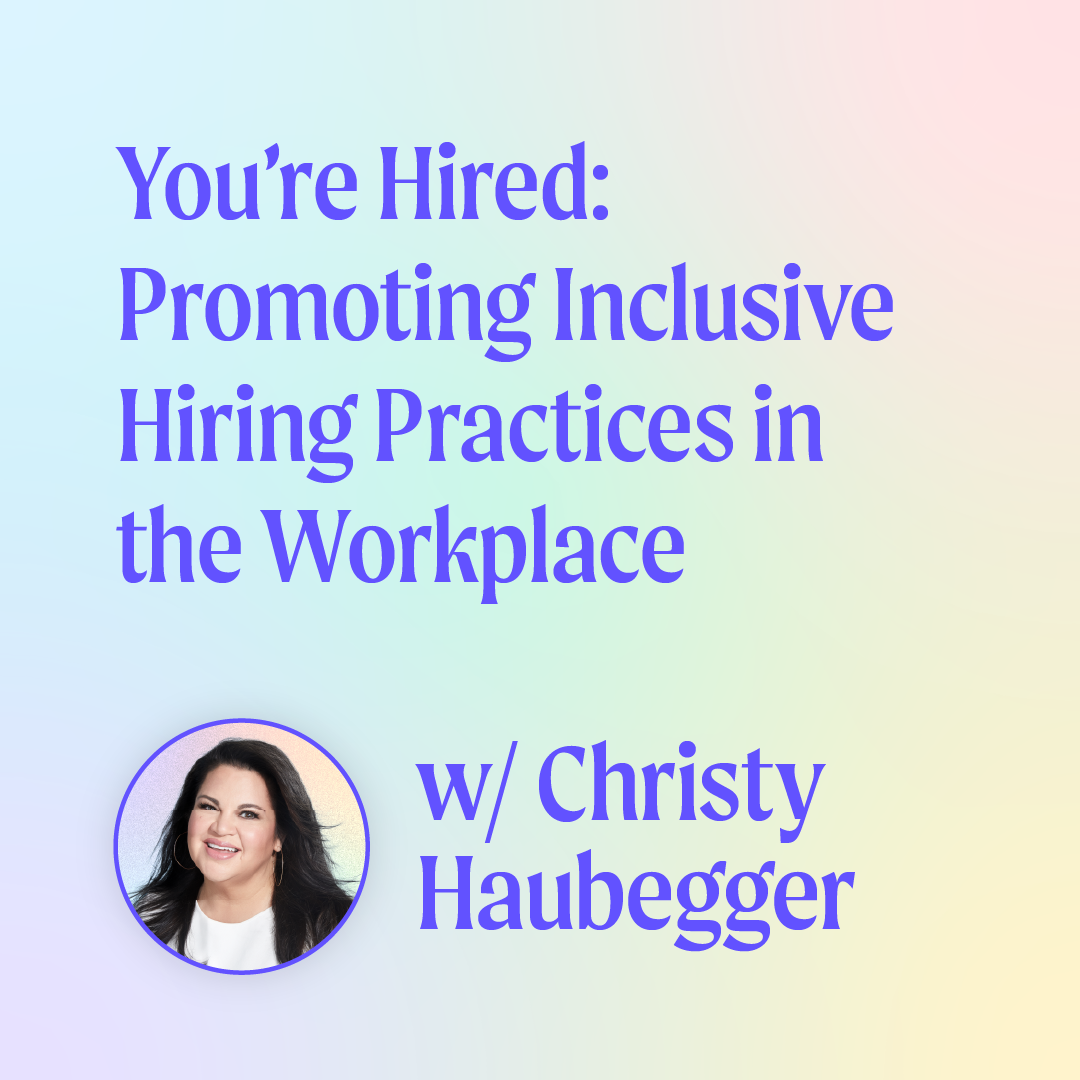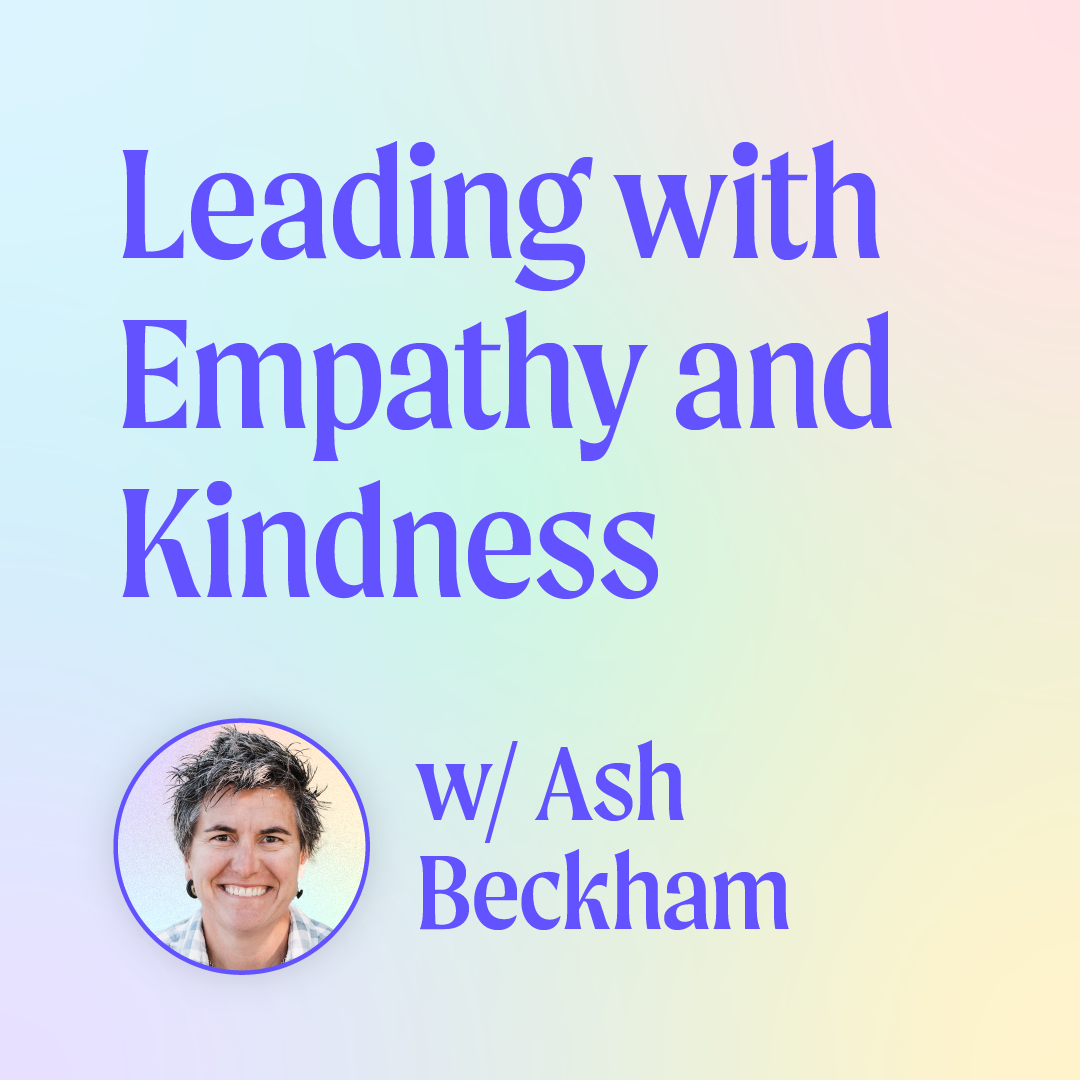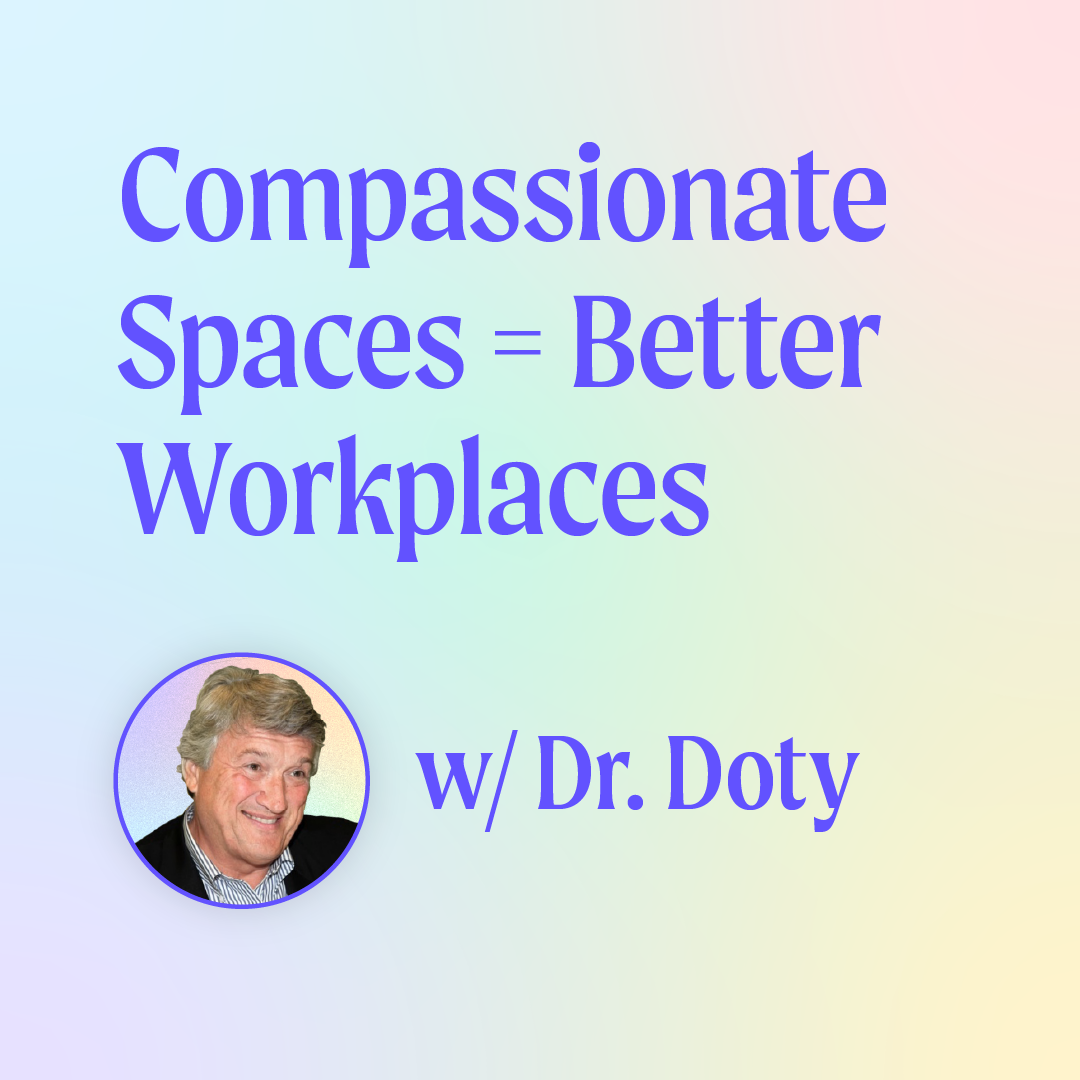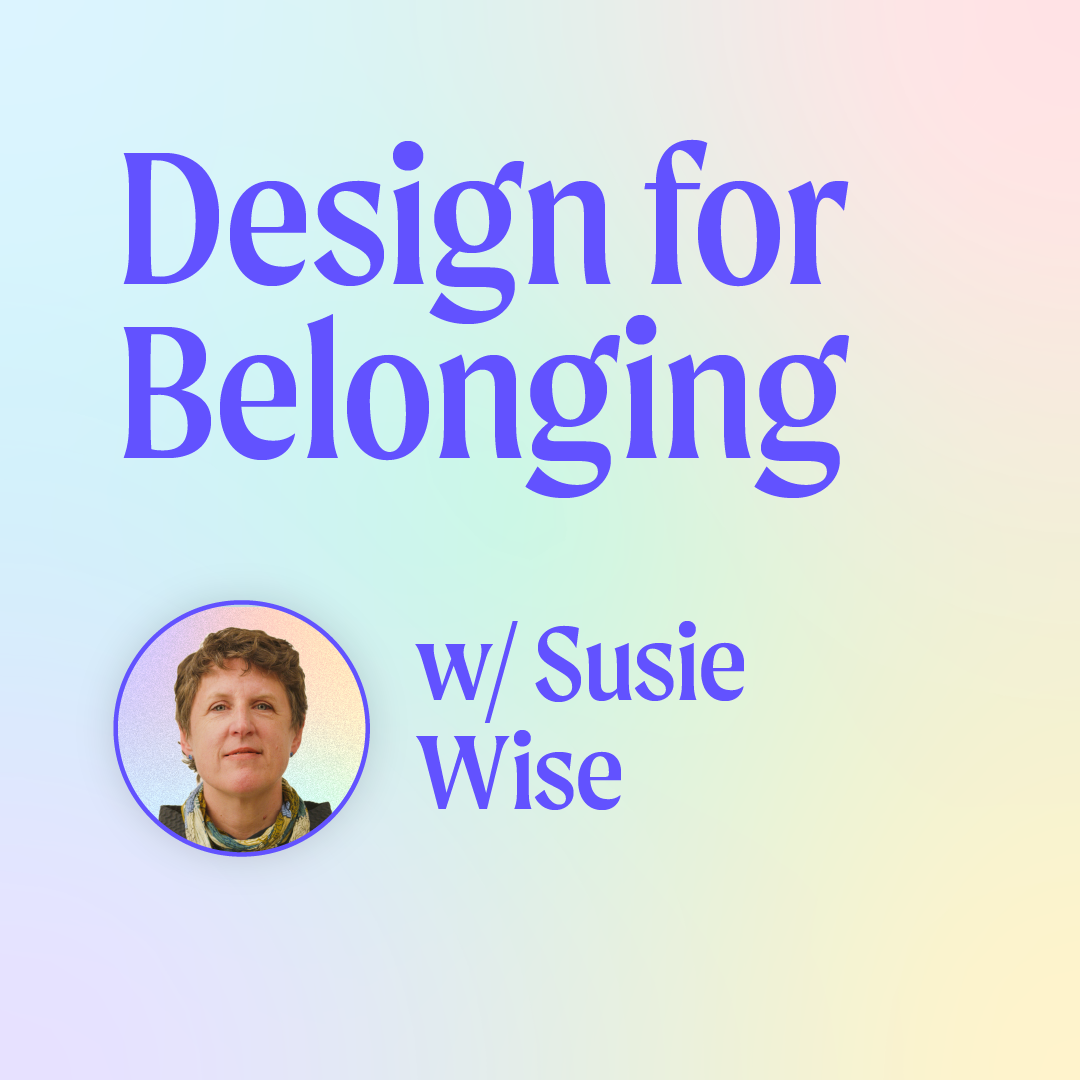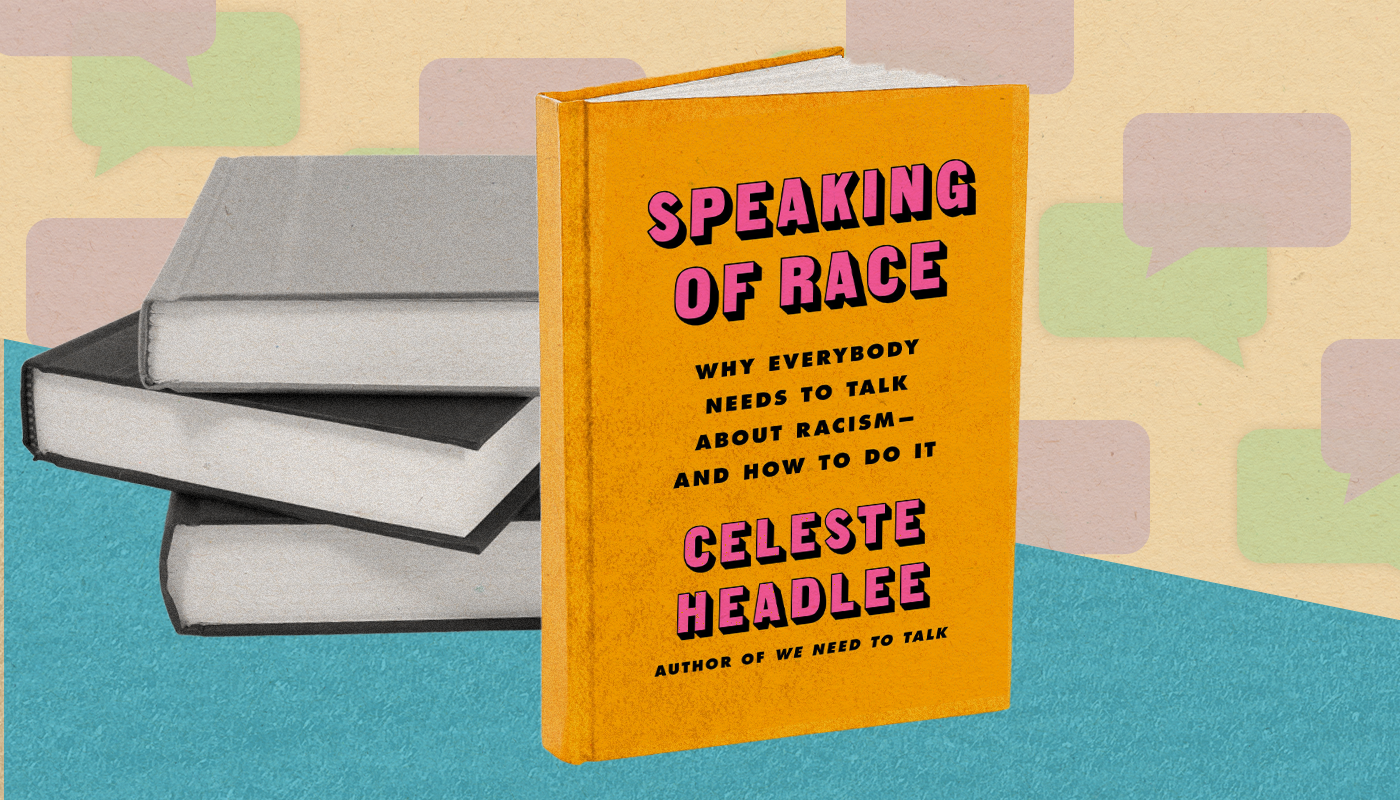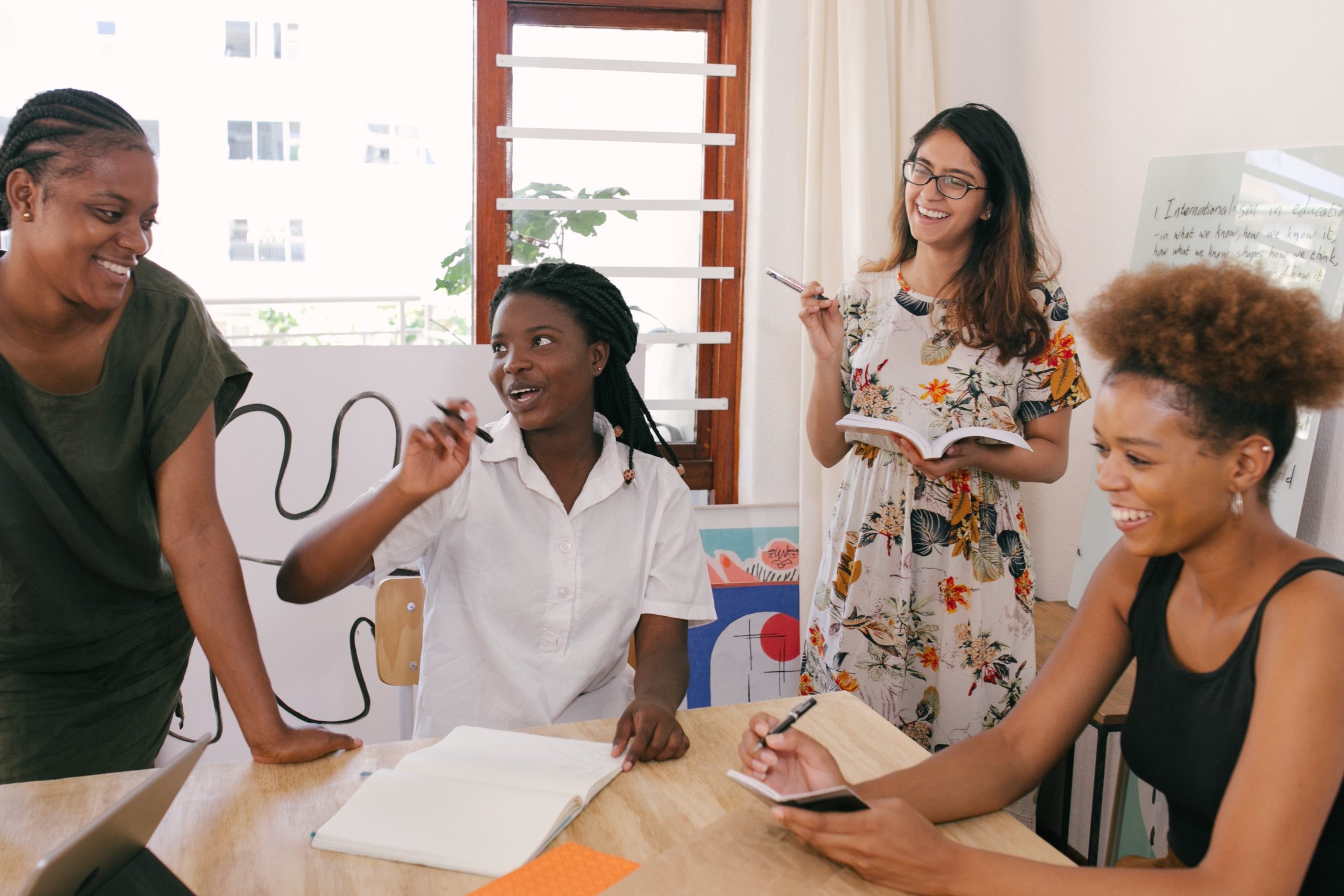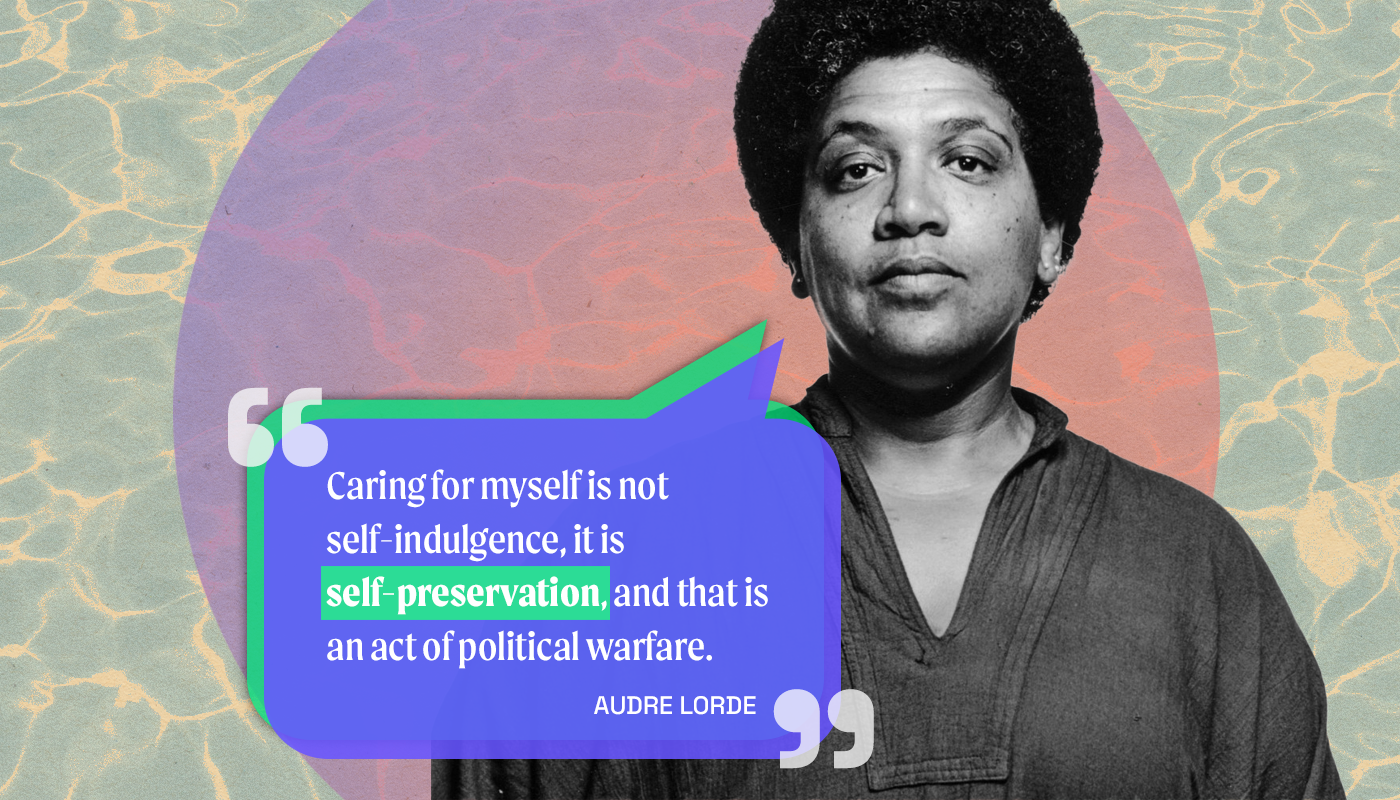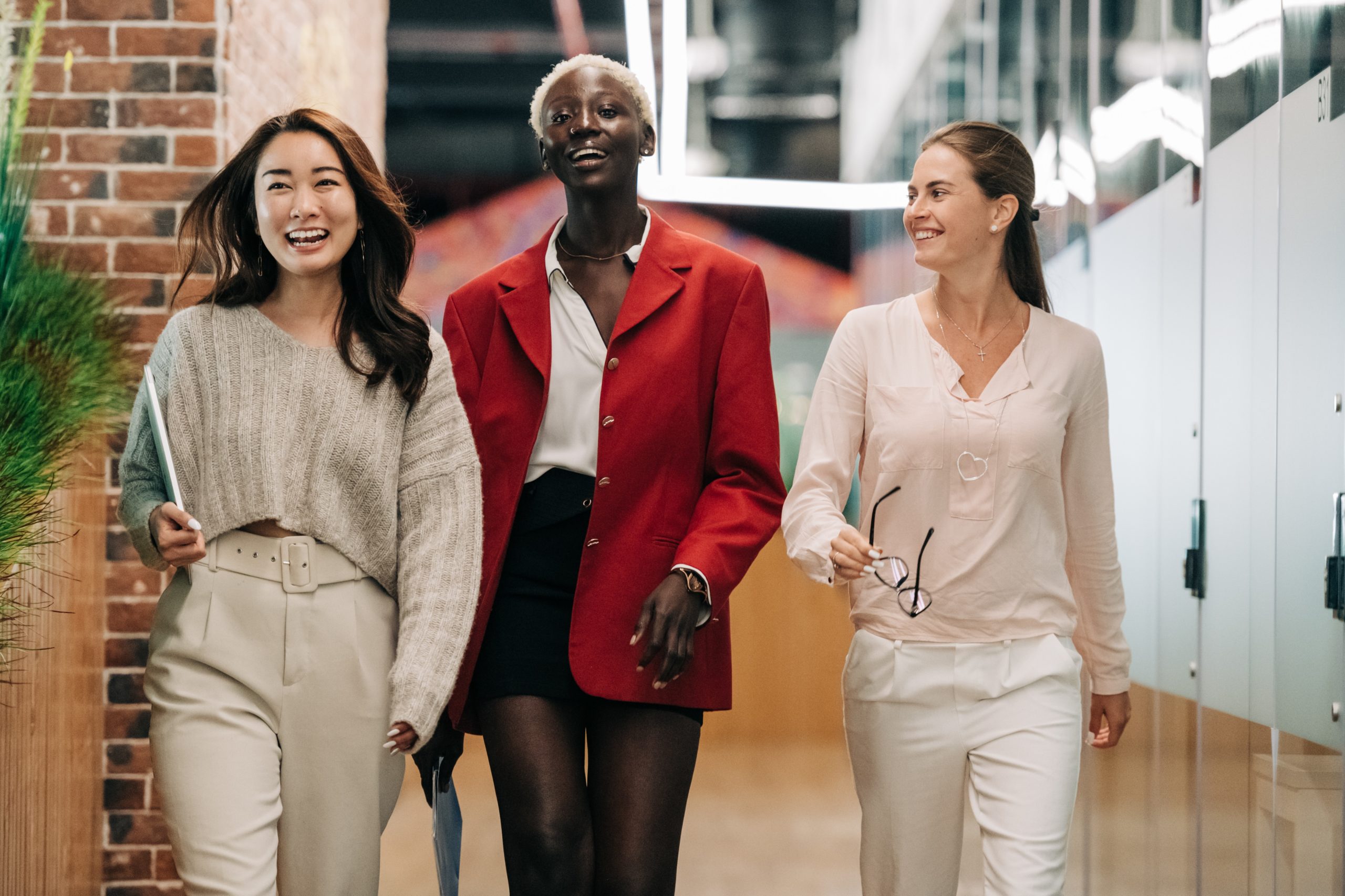The Art of Conversations that Matter
Episode Description
We’ve all heard the old adage, “sticks and stones may break my bones, but words will never hurt me.” But what happens when words do hurt? And what if the language we use has more power over our thoughts, feelings and daily interactions than we thought? This episode explores the relationship between language and inclusion, and the ways verbal and non-verbal communication can affect us. Jeffrey sits down with Celeste Headlee, an award-winning journalist, professional speaker and the author of three books including “We Need To Talk: How To Have Conversations That Matter,” and “Speaking of Race: Why Everybody Needs To Talk About Racism- And How To Do It.” Celeste is an expert in conversation, human nature, reclaiming common humanity and finding well-being.
On Air With
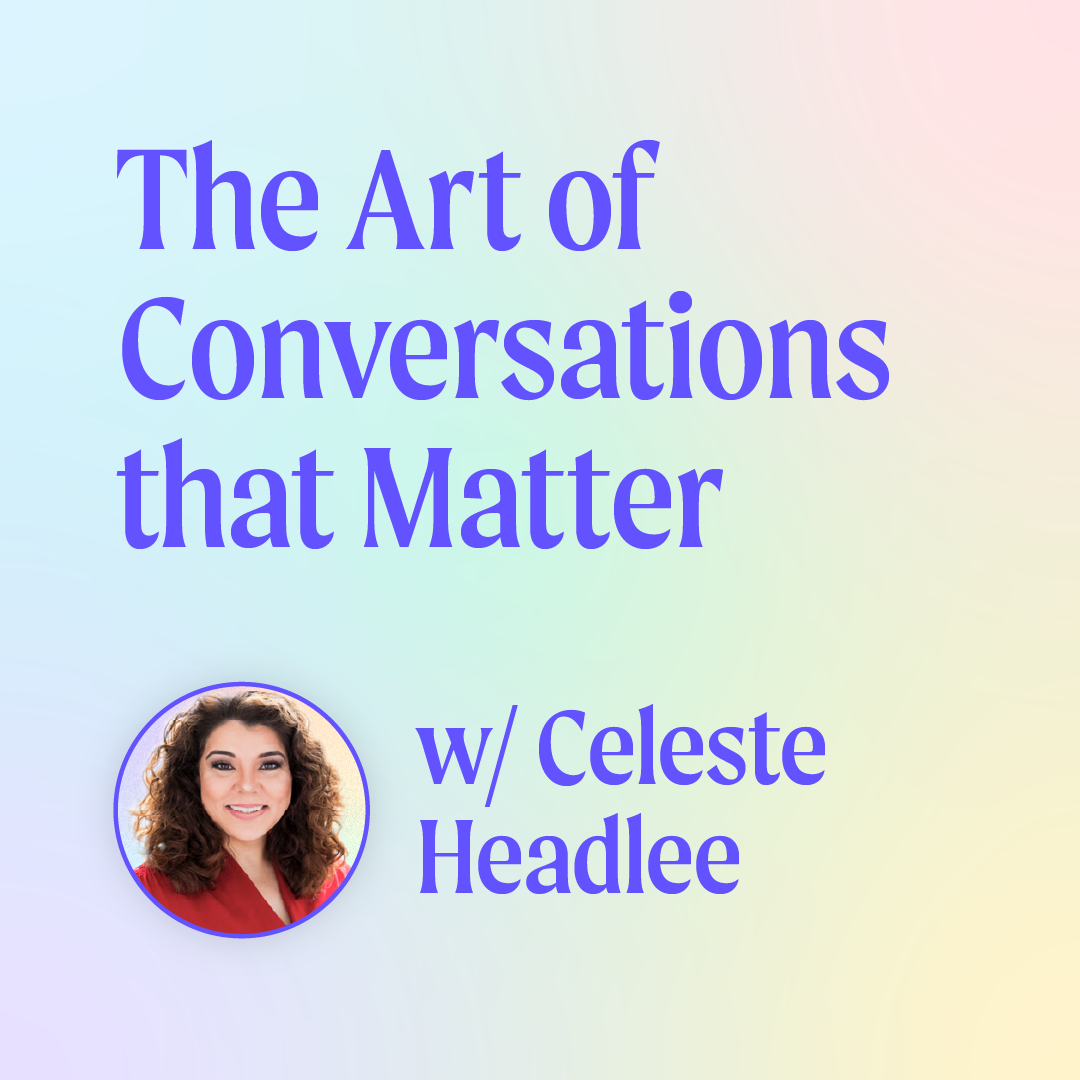
Episode Transcript
While IncludrPod is audio-based content, we’ve also transcribed each episode so everyone can enjoy the series. If you can choose, we recommend listening to the audio, which may include emotion and emphasis that cannot be captured on a page. Transcripts are generated using a combination of speech recognition software and human transcribers and may contain errors. Please check the corresponding audio before quoting in print.
This episode contains sensitive content and offensive language to cite a study, listener discretion is advised.
Jeffrey This is IncludrPod, a podcast that explores inclusivity, diversity and how to find common ground with just about anyone all through a scientific lens. I’m your host, Jeffrey Bowyer-Chapman. I’m an actor, podcaster, model and guest judge on the hit TV series RuPaul’s Drag Race. As a Black queer man, I know firsthand that with deep inclusion and acceptance from others, I can show up not only as my best self but as my whole self. Creating a safe space is the foundation of authenticity and everyone is welcome here. Welcome to the IncludrPod.
Speaker 2 I think some common words or phrases which I associate with being included or accepted are terms such as calling each other good friends or even more than that like family.
Speaker 3 Connection, safe and comfortable.
Speaker 4 I think the words and phrases I associate most with being included and accepted by a group are, you know, welcome, we’re so happy to have you here, take a seat, we want to hear your opinion.
Speaker 5 We spend the majority of our lives at work. And if we’re not cultivating a sense of belonging, that’s going to rub off into other areas of our lives.
Jeffrey We’ve all heard the old adage sticks and stones may break my bones but words will never hurt me. But what happens when words do hurt? And what if the language we use has more power over our thoughts, feelings and daily interactions than we thought? In today’s episode we will be exploring the relationship between language and inclusion and the ways verbal and non-verbal communication can affect us. I’ll be sitting down with Celeste Headlee, an award winning journalist, professional speaker and the author of three books, including We Need to Talk, How to Have Conversations That Matter and the upcoming Speaking Of Race, Why Everybody Needs to Talk About Racism and How to Do It. Celeste is an expert in conversation, human nature, reclaiming common humanity and finding well-being. Drawing from cutting edge research in neuro and social science, her aim is to increase our understanding of how we relate to one another and provide insights into how we can work together in beneficial ways in our workplaces, neighborhoods, communities and homes. I want to kick off this conversation by asking my favorite question on Earth. It’s the simplest and most complex question of all: who are you?
Celeste I am a journalist and mother and author and party thrower in the neighborhood and dog walker. And that’s me. Singer. Yeah, nobody will sing around me when you’re a good singer. Nobody else sings around you but you know.
Jeffrey I’m also curious to know why people pursue the path of professional writing and speaking. Was there a specific event or moment in your life that led you to pursue this path?
Celeste I didn’t pursue it. It pursued me. After my TEDTalk went viral, I got a call from an agent asking if I wanted to be a writer and write a book and I was like, I mean, how do you answer that question, right? Yes, absolutely.
Jeffrey What were you doing prior to?
Celeste I mean, I’ve been a journalist for NPR and PBS and PRI for a quarter century.
Jeffrey Interesting. So why specifically the lane of conversation, human nature and inclusion?
Celeste Because I think it’s the crux of how human beings solve problems. And it always has been evolutionarily. You know, we didn’t survive as a human species because we were stronger. Neanderthals were stronger. They had bigger brains than us. They were more resilient. They were many different human species. We didn’t survive because we were smarter even. No, it’s because we’ve been the best communicators and collaborators since Homo sapiens appeared, which means we can do all kinds of complex tasks. It means it doesn’t matter if I’m not a good surgeon with steady hands. I have the kind of collaboration skills to be able to tell somebody where it hurts and find the person who’s good at that. As I watched the world becoming yet more problematic and more polarized and what seemed to be the simplest problems becoming unsolvable because people simply shouted in the same room. It brought me back again and again and again to this idea that we’re not doing that one thing we do better than any other species here. I mean, and that’s certainly true when it comes to inclusion in terms of race. You know, I’m a racially nondescript Black, Jewish person, and so I have been in these kinds of difficult conversations about race my whole life. And so I know for a fact that it is possible to talk about it without arguing or getting mad or defensive. And so, you know, everything in my life and most of my career and my personal life brought me back to this topic of communication.
Jeffrey I’m so curious to know in regards to your cultural identification, how has that affected your lived experiences?
Celeste I mean, how does it not? Right? From a very early age when I was a young kid, I was absolutely obsessed with stories of mixed race people. And so I would read all of their memoirs and their stories. And because you’re searching for your identity, right, you’re not fully welcome at anybody’s table. And so I sort of absorbed myself in this idea of people who straddle the line and there comes a time, and in America, because we’re so racist. It comes very, very early at a very young age where you have to decide. And I had to decide because people are constantly asking, What are you? What’s your background, what’s your ethnicity or whatever it is? And I had to decide whether I was going to say white or Black. There was no way I was ever going to say white. There is no way that was ever going to happen because, you know, my grant, my parents, it’s not been that far back that we were slaves and we ended up being raised by Black people because who was going to take the brown babies, right? It wasn’t going to be the white side of the family. When my grandfather married a Jewish woman, her Jewish family disowned her. Right. So over again and again and again in my life, yeah, I have plenty of white blood in me, but that’s not who raised me. So that was never going to happen. But then there’s that whole imposter syndrome of I’m so light skinned, I don’t suffer the same indignities that a dark skinned person suffers. Can I say Black? Am I allowed to say that? And then I stopped asking if I was allowed. You just realize at some point that somebody else doesn’t have the right to tell me who I am. This whole idea of inclusion, I’m so glad that we’re talking about it today because it’s been part of my experience from birth. Where am I included? Right. And more than inclusion is welcomed because that’s the next step past inclusion.
Jeffrey Yes. Beyond tolerance, acceptance.
Celeste Exactly. And beyond inclusion, welcome. And that’s been a question for my whole life.
Jeffrey I’m fighting every urge and need to not just exclaim “me too” to everything that you were saying right now. I’m learning about the art of language and conversation. And that it’s flipping the conversation back to yourself, it’s like a form of conversational narcissism. I too discovered myself and my tribe and my lineage through memoir as a biracial person and raised by my white side of the family. I didn’t ever have any connection to my Black culture or my Black nature. I was called so many different.
Celeste So we’re opposite.
Jeffrey We’re opposite. Yeah. And I was I was called so many different things. I was called Black. I was called mulatto. I was called color code mixed. I was called biracial. I know we can get into that girl.
Celeste I was called high yellow.
Jeffrey I was called red bone. All of the above. And it’s like when language comes to racial identification like that, sometimes it does lead to you either feeling deeply included or excluded. I know that you mentioned the importance in the relationship between language and collaboration but in your opinion, what’s the what’s the relationship between language and inclusion and how does the how does one influence the other? And where do we see these two areas intersecting in our lives?
Celeste I spent a long time thinking about this. I have a book coming out called Speaking Of Race. And this is one of the things I thought about quite a bit because one of the piece of advice that I give is to let go of the language of racial justice. Like, don’t say micro-aggression if rudeness communicates what you mean. One of the big reasons for that is inclusion. Like, I absolutely am grateful for all of the research and work that goes into critical race theory and race scholarship, and creating a vocabulary of words that very specifically describe the particular phenomenon or piece of identity that’s so important. But when it comes to conversation, you have to let it all go because it can be so exclusionary. And for either side, whether you are a white person who’s making assumptions about common experience and common language based on the fact that you don’t think of any other races of having a different experience, right, that can happen where people will start making references to Andy Griffith or work or Christmas or whatever it is without even considering that other people have a different idea. Right? Or honestly, whether you are a person of color who is saying things like, “What is this my street identity?” And this is my, you know, some of the phrases that we used to accurately describe our experience but that for people who don’t have a lot of history or knowledge, don’t understand. And it makes them feel stupid. Part of this comes from my experience as a classical music host on public radio because when you are trained to be a classical music host, you’re talking about a very in-depth type of knowledge. Right. When you’re a classical music host, you can’t just understand music to a very deep degree. You have to be able to pronounce every single one of those names. You have to know when you say, Listen for the bassoon here, you have to know what that sounds like and what that instrument is. And all of us are the things, and you have to have knowledge of these composers’ lives. But if you talk that way, the only people, the only audience you will attract are people who are as knowledgeable about it as you. They always tell you, don’t ever use the phrase, of course. Right? That, of course, was Bach’s fourth concerto because someone who doesn’t know that is going to be like, what? Oh, I’m an idiot. Right? And it’s the same thing when it comes to race and identity that you don’t ever want to use any version of of course.
Jeffrey Yeah, that’s I mean, that makes perfect sense. And I think that ties directly into the difference in language usage when it comes to generational gaps. So when it comes to generational differences and surrounding language, how can we begin to bridge the gap between ourselves and our parents or grandparents?
Celeste I actually don’t think that’s that big of a challenge. I think everybody knows how to do this. But for whatever reason, we insist on using terminology that we wouldn’t if we were trying to explain to someone how to make a chocolate cake. Right. If you had an exchange student and you were trying to explain to them how to use the post office? You know how to do that. This is one of the things that again, as a journalist, you learn how to do because I fail as a journalist if I don’t take this very complicated topic and explain it in a way that you can go and tell someone, Oh, I heard the story on the radio this morning, this is what it was about. If you can’t understand it and take it to that level, then I have failed. And this is one of the things that I’ve learned from training journalists is everyone actually knows how to do that. If you’re standing in front of a kid and trying to explain Juneteenth, you know how to do that, you know how to do it.
Jeffrey I guess that leads me to questioning intention versus impact when it comes to language because I know that, you know, so often with older generations, specifically my grandparents, who still use terminology that could be considered offensive to people in my generation, whether it’s referring to, you know, Black folk as Negro. How do we begin to make it known that although their intentions may not be bad, the impact of what they’re of, what they are actually saying and using those words is offensive at this point. How do we begin to even, you know, find the bridge of understanding between where they are and where they need to be?
Celeste So you always have to make it personal, always. So you don’t say this is offensive to Black people. You say this hurts my feelings when you say this and I know you care about me. And would you please, for my sake, would you please not say that? And if they say it again, you say, you know, I I know you’re not the type of person who likes to hurt my feelings. And so I’m confused about why you keep using that term. But let’s stop talking about this because I’m feeling upset. And let’s try it another time. Make the assumption that their intentions are not malicious so that it doesn’t ratchet up. And this actually comes from marketing. There’s an old marketing principle for companies that you can basically divide your audience or your customers into three sections right by 20 60 and 20. And Dolly Chugh, who wrote the book The Person You Mean to Be, applies the same principle to discussions of race. Whatever it is that you’re doing, there’s going to be 20 percent of the people who are on board and there’s going to be 20 percent who are absolutely against it and there’s the 60 percent in the middle who could go either way. They’re open to be convinced. Any time you’re having a conversation about race, it’s kind of important that you identify who you’re talking to. Because if you’re talking to the 20 percent at the bottom, they’re not your audience. But if you’re talking to them, it’s possible you’ve got one of the 60 percent listening. In which case they’re your audience.
Jeffrey That’s so interesting and it’s such a practical practice because they think that so often when it comes to fear of conversation and fear of language like, you know, being surrounded by our family members can be a perfect example going home for Christmas or Thanksgiving or the holidays or whatever it may be because I feel like at this point in time in our country, it’s so obvious that we’re all so divided. I mean, arguably more so than we ever have been in human history. So in those situations when it comes to, say, having fear of speaking to your uncle who you know is a bigot or is racist or homophobic or whatever, you would suggest having a conversation with that person directly in hopes that, say, your cousins around the table may come on board with you.
Celeste Exactly. Your parents, whoever else that is now. If you’re only talking to that one person in the 20 percent, it might not be worth your time.
Jeffrey Maybe you’ll disagree but I think it’s so important to be intentional about language. And I love my father. He’s given me some incredible, priceless advice throughout the course of my life but he’s also given me some of the worst advice in my life as a child. He would say to me again and again, sticks and stones may break your bones but words can never hurt you. And what power the words hold over us and why is it important to be intentional about the language we use?
Celeste So your dad was partly right and partly wrong. I’ll put the part, he was mostly wrong. But the part where he’s right, is that sense that I think it was Eleanor Roosevelt who said nobody above me would insult me, nobody below me can. Right. This idea that we do have control over how we respond and react. Maybe not in the moment. You can’t control your emotions, they are what they are. But the effect that an event has on you is mostly within your control. On the other hand, we are a mostly verbal society, meaning that maybe it was different in the 1100s. But today, if an attack is going to come at you, it’s not going to be physical, it’s going to be verbal. And for our species, our social standing is everything. You have to remember that after food, shelter and water, the most important need that a human being has is belonging. So if you threaten our social standing, and how other people perceive us, that is an extremely serious attack. That is a threat. And in fact, when you watch, when you put fMRI, put someone in an fMRI, a functional magnetic resonance imaging machine, you see that after a verbal attack, their body and brain go through exactly the same process they would is as though they were physically attacked. Your heart rate will increase, your hormones begin to pump. All of those things will happen, preparing you to either fight or flee. That’s from someone insulting you. So this idea that words can never hurt you is quite literally not true.
Jeffrey Words matter, you know, to quote another master of language, Maya Angelou. Words have power. Words stick to the walls in your house. They, you know, like or like oil on our skin. Is there a PTSD of language, can certain words or phrases result in trauma?
Celeste I mean, absolutely. To say otherwise would be to pretend like microaggressions don’t matter. One of the things that I write about in my book is the famous doll test that the Clarks conducted, that study they conducted with children, Black children. And it led to the idea that the Supreme Court decision that separate is not equal. But basically what they did is they presented all of these young Black children with a Black doll and a white doll, and they asked them questions. And they would ask these Black kids, OK, which one is the pretty doll? And they point to the white doll. Which one is the good doll? And they would point to the white one, and then they’d say which one looks most like you, and I’m about to use an offensive term because I’m going to quote this small boy. But he pointed, they said, “Which one looks like you?” And he pointed to the Black one, and he said “That one, that’s a n***** like me.” So words matter. You think this kid was born thinking he was bad and not pretty? No, that seeps into people’s psyches. It becomes the story that he told himself. And so was that kid racist? He absolutely is. He is racist against his own race. And that’s what systemic racism does.
Jeffrey It’s inarguable that words have impacted are important but how important is context when it comes to language? You know, if, for example, what you just use when it came to, you know, women being referred to as hon or girl? When we when we in the queer community, you say, use the word queer or, you know, women call each other sluts, does the context in which these used these words are used matter? And how do we navigate this complexity?
Celeste I mean, context always matters, right? I mean. It’s a sad truism that perception is reality. It is both empowering and depressing. It’s empowering because we can perceive things differently if we so choose. And let me give you an example. Let’s say that you were having trouble with your knees. You’re in a lot of pain. Takes you forever to get an appointment with your orthopedist. Right? You wait two and a half months for this appointment. The appointment is coming up and the day before you get a call from the office going, “I’m sorry he has to cancel. We’ll need to reschedule. The next appointment is available in a couple of months.” Right. And you can imagine how angry that would make you. Now, let’s say you been sitting there stewing on this the whole time, you’re pissed off, you’ve been in pain for another extra two months. You go in for your appointment and the orthopedist says, “Thank you so much for waiting. The earthquake happened in Haiti and I rushed down there to help treat.” You see how quickly your perception changes and that anger, which was justified and the act did not change. It’s only your perception. And this is also true not only of people who are racist and exclusionary. We can change their perceptions. And it is also true of people who are dealing with someone else who is maybe not as accepting as we want to be. And frankly, the LGBTQ community is a perfect example because the public views on LGBTQ issues has changed faster than pretty much any other issue ever in history. I mean, congrats, you guys have the special sauce. It’s because you’re also fabulous, right? But it’s I’m making a joke, but you know what I’m saying? It’s like, this is something to study to see how that was accomplished. Why it happened. The other views of LGBTQ marriage. The views of acceptance of civil rights changed incredibly quickly once that began. And that is hopeful. It means that a context does matter. And when all of it is in alignment, people’s minds can be changed.
Jeffrey Why is that? Why is it that specifically with the LGBTQ community in the language that has been used around it, why is it that that has been the thing that has had that, you know, that has been blessed to have so much social change in our culture and society?
Celeste I don’t know why we saw that rapid shift for LGBTQ people. And if you have the answer, I am here for it. But I know that what has been occurring over the past, say, 50 years is this political polarization, which is preventing change from happening on other issues, whether it be climate change or race or whatever. The only time minds change is when you get this part of the brain involved, the part of your brain that deals with empathy. So take your right finger and put it at the top of your right ear and move it up just about an inch. Yep, and move it back. Just about an inch and a tiny bit down. OK, so that’s where your empathy and your self-control are essentially in the outer folds of your gray matter. And that’s where change happens when minds do change. It’s because this has been engaged. Now there’s some really exciting research has been going on to something called neural coupling. And the work began in Princeton but now it’s happening in other places. And essentially, what they what they did in these, the early experiments, is they would hook someone up to the fMRI and they would have until a personal story and then they’d have a whole bunch of people come in and they would listen to this person telling their story also with hooked into fMRIs. And they discovered that when they began listening in an engaged way, right when they clicked in, the brain waves of both the listener and the speaker began to move in exact sync. Exact sink and I point this out because there’s no reason that should work. Brainwaves or electrical impulses inside your brain, they weren’t in the same room, it was at the same time. This was just a human voice telling a personal story. And human ears listening to it. And there we created empathic bond. It cannot be replaced by emojis or GIFs or whatever else it is. Now we know that when empathy is engaged, that’s when you are actually involved in a transformative listening, meaning that you are willing to be changed by what you hear. And that’s what makes the difference.
Jeffrey Tone does have impact, but words are so impactful and in so many ways, I’m so curious to know how do offensive words and terms become mainstream in society? And what would you say is the threshold for a word to take on an offensive connotation?
Celeste So word becomes hurtful when it hurts somebody. It becomes offensive in the broader sense when everybody knows what that meaning is. And I’ll give you a really good example of an offensive term that I used and was called out on, which was paddy wagon. I was at a conference, literally, it was the racial amity conference about all about race is getting along with one another that happens annually and in Massachusetts. And I use the term paddy wagon and one of the Irish people in the group was like, that’s an offensive term. Because at the time at the you know, in the in the 19th century, in the early 20th century, people assumed that those trucks that police officers used to take people to jail, they assumed that both the police officer and the criminal would be Irish. That was the assumption. And because paddy wasn’t an offensive term for an Irish person, they called those paddy wagons. Now that’s not as offensive anymore but it’s only because nobody knows that definition anymore. And by that, I mean, if I were to say paddy wagon in 1910, everyone would have known I was insulting Irish people. Now nobody’s taking that as an offensive term. However, I don’t use it anymore because somebody was hurt by it. It still has enough power to make somebody feel excluded. Some terms lose that power because they don’t have that shared meaning anymore.
Jeffrey How do we teach others who may not be educated on inclusive language without alienating them from the conversation?
Celeste I mean, this goes back to your intention. Very often when people say to me, when they say things like I’m told, I have a harsh tone, it’s almost entirely because they’re going through life trying to educate people.
Jeffrey Woo hoo. All right. I hear that.
Celeste And that’s a bad idea. It’s a bad idea because you will not be successful. You’re not going to educate people. And I know this because there’s two instances in which conversation has a negative impact on someone’s mental and physical well-being. Every instance of conversation is good for you, except A when it’s hostile and B when someone’s offering you help, even if you’ve asked for the help. We don’t like it. Well, we naturally have a bad reaction to it. We naturally become defensive and that reaction I was talking about earlier where you respond to an attack. That’s what happens when people offer you help or advice. This is why I tell people all the time do not give unsolicited advice and that includes unsolicited education. Instead, what you have to learn to do is do the Sesame Street model, which is educating through engaging. We watch our kids and you’ll realize the TV program is constantly asking the kids questions constantly. Wait, what is this? Where is the reds crayon, right? And the kids go, it’s over in the corner, it’s right there, right? And we think, Oh, that’s how kids learn. Nope. That’s how human beings learn. And so in order to actually engage someone in education, you have to engage them by letting them participate. It has to be collaborative but that means you also have to enter into this. Prepared to learn as well as teach. If you are not open to learning anything from that person, keep your mouth shut.
Jeffrey As Celeste mentioned, language is one of the most important and effective tools we have for promoting inclusion today. She noted that the reason we’ve survived so long as a species is because of our ability to communicate and collaborate with one another so effectively. So when it comes to navigating the world of language and inclusion, perhaps it’s not as complex as we might have thought. As Celeste suggests, we all know how to communicate in a way that’s simple, digestible and therefore inclusive. It comes down to resisting the urge to use words and phrases that others may not understand. And speaking your mind in a way that’s respectful and easy for anyone to grasp. As humans, we have the ability to be clear and concise communicators. It’s time to tap into that inherent talent. How can we use language as a tool to promote deep inclusion?
Celeste Language is, I don’t want to say the only effective tool we have for inclusion but it’s probably the most important and certainly the most effective. You know, it’s funny because whenever I enter into DEI work, which I’ve been doing a lot lately, interventions. One of the first things I do is have people tell me is, what is diversity? What’s the difference between diversity, equity and inclusion? We lump them together all the time. But what do they mean? You can have a diverse staff that doesn’t feel included. And that doesn’t mean everyone should feel comfortable all the time. It means if they feel discomfort, it shouldn’t be because of their identity. Inclusion means all identities are accepted and included in every step of the process, whatever that process may be. Right? Any time you have more than one person, you have a system in human society. And so when you talk about inclusion, that means the system welcomes everyone in terms of their identity. It doesn’t mean you should feel comfortable bringing your cat to work. OK, that’s not inclusion.
Jeffrey Speaking of systems and inclusion, let’s flip that around and talk about systems and exclusion because we’ve learned in this podcast series how language is often the first step in dehumanization and division often used irresponsibly, you know, in political arenas. In an era where political correctness and decorum has all but vanished and hateful language is, you know, when all that comes with it is more prevalent than ever. How do we begin to course correct and get back on a path of mutual respect and kindness towards our fellow human beings?
Celeste I actually really wish we would get back to the study of rhetoric. And this study, the philosophical study of debate. This is a centuries old study. And when you actually look at debate, there’s ethics involved about how you engage with another person in civil discourse. And we’ve lost ethics completely. We don’t even think about ethics when we enter into a conversation. So think about this because someone says something that’s offensive. Is that the same as consent for the conversation about race? I’m not giving an answer, I’m just saying, have we thought about it? Is that implied consent? Because any time you’re having a discussion about racial identity, you need consent. So these ethical considerations need to be worked through. How do we define these terms? What does it mean to be racist before I use the term racist? What does that mean? Does that mean prejudice plus power? Or does it mean prejudice? Or does it mean bias? Like, what does that mean before I use that term? If we could get back to this sort of establishing frameworks for these things, I think we’d be much better off in the end, and we would be able to have the kind of complicated questions and conversations that we need to have to solve these problems. We are capable of solving incredibly complicated problems but we need to be able to collaborate.
Jeffrey Right. Well, speaking of ethics and consent and you spoke of social belonging earlier in our conversation, social media is one of the ways in which we communicate with one another today. It’s one of the main ways in which we communicate with one another today. It clearly can be used as an empowering or a destructive tool of communication. What are some of your tips for using social media in a way that’s constructive rather than destructive?
Celeste Don’t expect to have a conversation on social media. It’s not going to be a discussion. The only times it’s used effectively is when it’s used to create connections that then turn into authentic social interactions. So people talk a lot about finding their community online but that really only to our bodies, to our physiology and our psychology. It only has a truly beneficial impact when you get that biofeedback that makes changes in your body and we don’t find a whole lot of evidence for that over social media. We know that when you use e-mail, it tends to make you less collaborative, less compassionate. It tends to escalate conflict. We know that use of social media polarizes people and sends people to the extremes of whatever their political views are. And we know that text in any form does not engage the brain and the emotions in the same way as either talking or being on the phone or being in person.
Jeffrey So in-person communication is so important and impactful in how we communicate and connect with one another as the world is, you know, hopefully beginning to return to some semblance of normalcy and returning to the workplace, for example in person. How can employers and corporations be more inclusive in the language they choose when it comes to bringing people together?
Celeste So first, I want to address and I know this was just in passing but I just want to address that use of the word normalcy because we were in trouble before the pandemic fell. We were already in a toxic and very unsustainable place. Our habits, our relationship to work, our relationship to workplaces was already exclusionary, inequitable and frankly, just not sustainable for the health and well-being of human beings. So I hope we don’t return to normal. I hope we hit a reset button and start over.
Jeffrey Let’s do that. So how do we do that?
Celeste The first thing is to stop making assumptions about values. So many of our values are built on a white supremacist culture. And in terms of work life balance and inclusion, so many of who we think of the things that we value in terms of a hard worker. Nope. Not a good value. Realize that you are biased, accept it. Stop being defensive about it and understand I’m biased. And so what does that mean going forward? How do I set systems in place that prevent me from actually allowing my bias to express itself in a way that’s going to hamper someone else or hamper the company? How do I create equitable systems to where, even if I’m biased, it won’t matter. That’s how we move forward. We stop worrying about values because the fact you know, this is the reason why standard DEI training doesn’t work. And in fact, some research shows it’s counterproductive. In fact, they, there’s evidence that after the standard DEI training, there’s a higher likelihood of actions of discrimination and bias afterwards. Right. The reason is because most of this training has been focused on changing people’s values. The fact of the matter is, you can’t change somebody’s values. Remember the 60 20 20, even for the 60 percent, it’s very hard to touch their values, their core beliefs. You can’t change them. But what we do know how to do, what we have a ton of evidence in manipulating is behavior. We can change behavior. And we do that through a process of incentives and disincentives. I suggest we stop debating the value of diversity and simply create behavioral science and create processes that either reward it or punish it.
Jeffrey Mic drop, that’s beautiful. Lastly, Celeste, what does deep inclusion mean to you?
Celeste Deep inclusion means we are talking about it any more. Deep inclusion means we don’t need any more diversity officers because it’s part of the way we go through life. That’s what gets attention right? That’s what deep inclusion means. It means it’s so deeply embedded in what we do that we don’t even notice it anymore.
Jeffrey Thank you so much for the Celeste. I’ve enjoyed this conversation more than I can say. You’ve been such a joy. Thanks for joining.
Celeste Thank you so much. I’d like to bring joy. Thanks for having me. I appreciate it.
Jeffrey As we heard from Celeste during the episode, the old idea that words don’t hurt is quite literally untrue. Science has shown that our brains and bodies go through the exact same processes from emotional pain as they do from physical pain, which should make us all the more careful about the words we choose in our day to day lives. In the fight for a more inclusive, accepting society, one of the greatest tools we have at our disposal is empathy. Celeste story about neural coupling and storytelling only confirms what many of us already knew. Being vulnerable enough to share your story with others can be a powerful catalyst for change. As we work together to rebuild a stronger, more empathetic society. It’s important that we all learn from the past so we can create a better future. Things will never go back to the way they were prior to 2020 and in our books that’s something worth celebrating. By continuing the dialog around inclusivity, diversity, language and more, we can find solutions to the challenges we face and move the needle in the right direction. As Celeste says, we’ll know we’ve achieved deep inclusion when we no longer need to talk about it but until then, the conversation must go on. Thanks for listening to InludrPod, the podcast exploring inclusivity, diversity and empathy, so we can all be kinder to one another. If you like what you heard, make sure to subscribe, rate and review the show wherever you get your podcasts. For more info, blog posts, shownotes and more. Visit Includr,org. This season of IncludrPod was made possible by The Andrew Nikou Foundation and a special shout out to our team of amazing producers who helped bring the IncludrPod to life, including Jules Ho, Elle Carlos, Brittany Nguyen, Stephanie Andrews, Mackenzie Patterson and Stacey Orth. Stay tuned for our next episode. I’m your host, Jeffrey Bowyer-Chapman. See you next time.
Source material:
- https://celesteheadlee.com/


